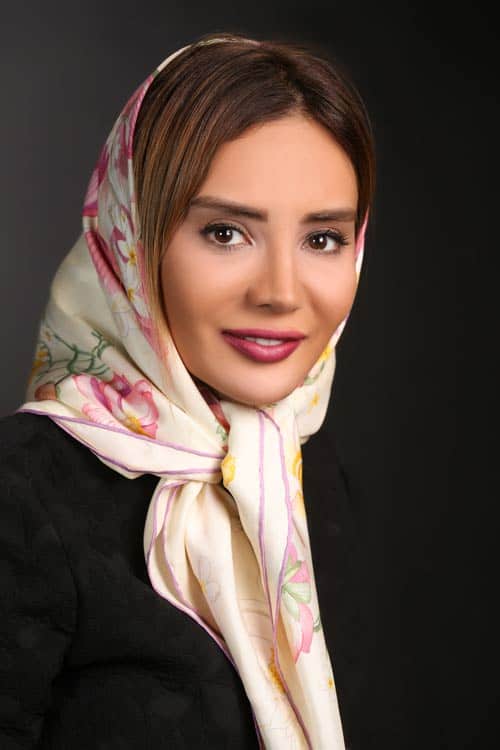Navigating the Legal Landscape of Iran’s Oil Industry: A Guide for Foreign Entities
Publications
July 8, 2024Publications
December 15, 2024Introduction
Operating an oil business in Iran involves navigating a complex and multifaceted legal and regulatory framework, operational steps and legal risks. This framework, designed to ensure national control over valuable petroleum resources, facilitates foreign investment through specific contractual agreements. For foreign entities, a comprehensive understanding of Iran’s legal landscape is not just crucial but also empowering, as it paves the way for successful engagement in oil exploration, development, and production. This article delves into the key legislative instruments governing the oil sector, the necessary steps for foreign entities to operate, and the potential legal risks they may encounter.
Legal and Regulatory Framework for Operating an Oil Business in Iran
In brief, the Iranian oil and gas legal framework comprises several critical pieces of legislation:
- The Iranian Constitution Law 1979: Establishes the foundational legal principles governing national resources.
- The Petroleum Act 1987 (edited in 2011) Addresses the ownership of petroleum resources and the powers entrusted to the Ministry of Oil.
- The Law on the Duties and Powers of the Ministry of Petroleum 2012: Defines the Ministry’s roles and responsibilities.
- The Six Development Plan (2017-2022): Outlines Iran’s economic policy, including oil and gas sector objectives.
- The General Terms, Structure, and Model of the Iran Petroleum Contract (IPC) 2016: The legal framework for Iran Petroleum Contracts (IPC), the latest contract models for upstream oil and gas activities.
The IPC combines elements of buy-back contracts (former upstream contracts in Iran) and product-sharing contracts (PSC), reflecting a modern approach similar to Iraq’s technical service contract. According to the IPC Resolution (Article 2 a), there are three categories of IPC contracts:
– Exploration, Development, and Production Contracts (IPC E&P)
– Contracts for the Development of Explored Green Fields and Reservoirs (IPC D&P)
– Agreements for Improving Recovery Rates for Existing Fields (IPC IOR/EOR)
Required Steps for Foreign Entities to Operate an oil business in Iran
1- Principle of Public Ownership and Risk Service Contracts
In Iran, the government has full control over oil and gas resources. Foreign companies cannot own these reserves directly. Instead, they can enter into contracts with the National Iranian Oil Company (NIOC) to invest in and operate oil and gas projects. Foreign companies can sign risk service contracts to participate in upstream activities. This approach allows international oil companies to access the Iranian oil market while respecting the country’s sovereignty and public ownership of resources.
2-Winning the IPC Contract
NIOC contracts are subject to the Tender Act 2005. However, exceptions allow certain contracts to bypass tender procedures with prior approval, provided an acceptable justification for each particular case is submitted. Prior approval from the relevant authority should be obtained before leaving the tender procedures.
The Ministry of Petroleum has recently added a provision to the Duties and Authorities of the Petroleum Ministry Act of 2012. According to this provision, contracts related to exploration, development, production, repair, and maintenance of joint oil and gas fields are excluded from the scope of the Tender Act, subject to approval by the Ministry of Petroleum and compliance with NIOC’s transaction rules.
The contractor is selected “in the course of a legitimate process, “defined by the Ministry of Petroleum. The foreign entity does not have to incorporate any company in Iran. If more than one company decides to conclude the IPC in Iran, it can operate in Iran as a consortium or a joint venture.
3-Establishing a Joint Venture with an Iranian Entity
Article 4(a) of the IPC Resolution requires foreign investors to partner with an Iranian Exploration and Production Company (E&P). This joint venture facilitates technology transfer and training, which is essential for managing future projects. Foreign investors can propose non-listed Iranian E&P companies for approval by NIOC.
4-Joint Management Committee (JMC)
A Joint Management Committee (JMC) is a group established under the IPC contract and consists of representatives from both parties involved in the contract. The JMC has an equal number of members from NIOC and contractors (IOC), each with equal voting rights. The JMC is responsible for overseeing all project operations and making decisions on technical, financial, and legal matters within the framework of the IPC contract. It also has the authority to make decisions regarding the annual work program, budget, and the selection of subcontractors.
According to Article 8 (d) of the IPC Resolution, the IOC is responsible for implementing operations within an approved annual program and budget approved by JMC. The NIOC authority should then confirm such a decision. In most cases, however, the NIOC’s general manager will delegate their authority to their representative(s) in each contract or project to approve the decision of JMC.
5-Annual Work Program and Budget Plan
After the exploration phase and during the development and production phases, contractors must prepare and obtain NIOC approval for an annual work program and budget. Operations must adhere strictly to the approved budget and plans.
6-Transfer of Management Positions, Technology, and Knowledge
Foreign contractors must share executive management positions with Iranian nationals, facilitating the transfer of know-how. Training programs and plans for technology and knowledge transfer are required components of the IPC.
7-Statutory Local Content Requirement
The IOC is also obliged to maximize the use of local products and services. According to Article 4(b) of IPC Resolution and the “Law of Maximum help of Iranian Technician, Engineering, Manufacturing, Industrial, and Executive Capability for Implementation of Projects,” at least %51 of the value of the project, excluding immovable properties, must be allocated to services and goods provided from inside Iran.
8-Human Resource Obligations
Per Article 4(c) of the IPC Resolution, foreign contractors must employ Iranian nationals and provide comprehensive training plans to enhance the quality of the local workforce.
9-Minimum Production Level
Contractors must achieve a minimum production level specified in the field development plan.
10-Environmental and Safety Regulations
Operators must conduct environmental evaluations and comply with safety, healthcare, environmental, and social regulations.
Legal risks that foreign companies should be aware of before considering doing business in Iran
1-1 General Risks
Foreign companies face legal complexities and bureaucratic hurdles despite efforts to facilitate business, such as the Foreign Investment Promotion and Protection Act 2002 (FIPPA). Corruption and bribery can also pose challenges.
1-2 Specific Risks in the Oil Business
Foreign entities must ensure thorough due diligence on their Iranian partners to verify their capabilities. As per Iranian Petroleum regulations, foreign entities must have an Iranian partner when signing an IPC contract with NIOC. Therefore, foreign contractors need to be cautious and conduct comprehensive due diligence on any potential Iranian partner. It is advisable to thoroughly assess the financial, technical, tax,
reputation, and legal aspects to ensure that the Iranian partner has the necessary capabilities to fulfil its obligations.
The transfer of executive positions to Iranian nationals can pose production risks. According to the IPC resolution, the IOC, as the contractor/ operator of the IPC, should transfer the executive management positions to the Iranian nationals to facilitate the transfer of know-how and managerial skills to the Iranian entity. Such obligation can be associated with some production risks in the later stages of the contract. Therefore, foreign companies should train their Iranian partners very well and make sure they have appropriate knowledge at the later stage of the project.
Contractors need to specify penalties for failing to meet production levels, as the IPC framework does not outline consequences. The contractor/operator must achieve the minimum production level stated in the IPC contract; however, the Iranian petroleum legal framework does not seem to address consequences in the event of failing this obligation. Therefore, the foreign entity should define the penalties in the contract to mitigate the associated risks.
Additionally, no cost recovery or fee payments occur until the production phase, and all risks and costs fall on the contractor if exploration fails. Besides, the Iranian government does not guarantee NIOC’s commitments under IPC contracts.
1-3 Governing Law and Dispute Resolution
The IPC Resolution designates Iranian Law as the governing law for interpreting contract terms. Any arbitration clauses involving government or public assets require approval from the Iranian Parliament or Council of Ministers.
Conclusion
Operating an oil business in Iran involves understanding the country’s laws and procedures. Foreign entities need to consider contractual obligations, partnership requirements, and legal risks. By following these guidelines and doing thorough due diligence, international oil companies can effectively participate in Iran’s oil and gas sector and contribute to economic development.
AUTHORS & CONTRIBUTORS
Share:


